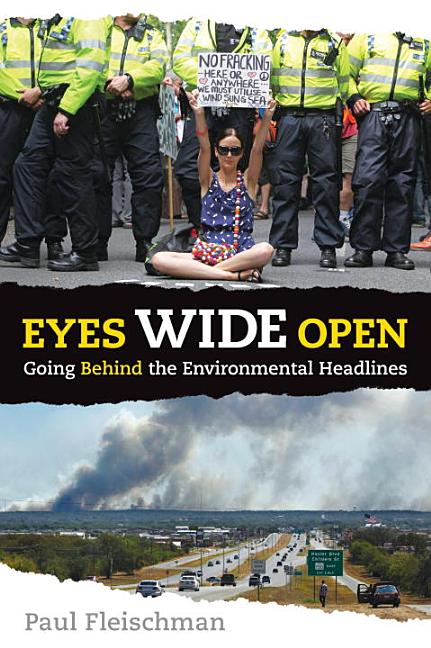Book Description
for Eyes Wide Open by Paul Fleischman
From Cooperative Children's Book Center (CCBC)
An informative and engaging book about the complexity and interconnectedness of environmental issues is also a phenomenal primer on critical thinking, human psychology, and how to become informed about and invested in the future of our planet. What happens when we don’t like what we’re hearing or reading about environmental issues? What happens when we are presented with factual information that challenges what we believe or think we know? How do we respond as individuals, and collectively? The book is divided into sections titled Noticing, Perception, Defense Mechanisms (e.g., denial, projection, regression), Systems (e.g., democracy, capitalism), Attitudes, and Eyes Abroad and Ahead. Using real-world examples, Paul Fleischman challenges readers to think about where information they are looking at or hearing comes from (follow the money) and who has a vested interest in it (follow the money), and to learn what to consider in evaluating what they are seeing, hearing, or reading. He acknowledges that it can be hard to be optimistic about our environmental future, but becoming informed and engaged is a critical first step to rising to the challenge and collectively fighting for change. (Age 13 and older)
CCBC Choices 2015. © Cooperative Children's Book Center, Univ. of Wisconsin - Madison, 2015. Used with permission.


